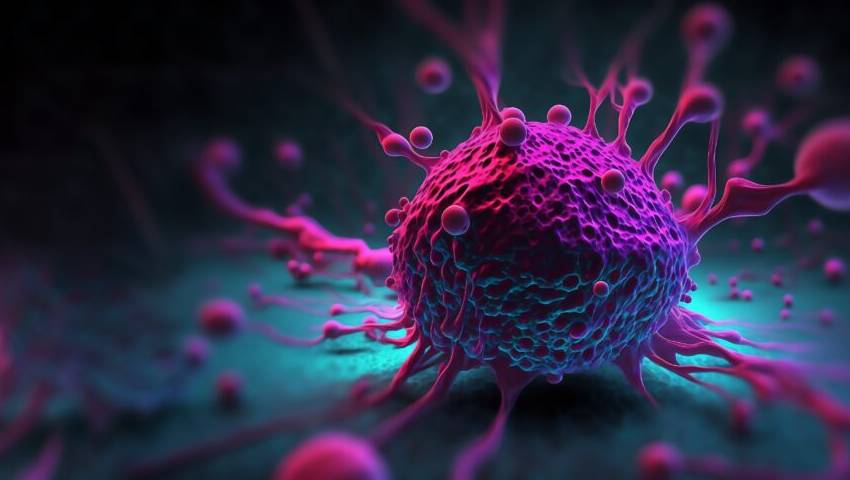
- 22/11/2024
- Dr. Pratik Patil
- 0 Comments
- Blog
How to Prepare for Winter Challenges in Cancer Treatment?
Facing winter challenges during cancer treatment can be difficult. As treatments like chemotherapy and radiation can weaken the immune system and increase sensitivity to the cold. To stay safe and comfortable, preparation is key. Cancer treatments might increase vulnerability to some cold-weather risks, making wintertime especially challenging for patients including-
- Hypothermia: Patients who have a reduced ability to control their body temperature may be at risk for dangerously low body temperatures. It’s important to protect oneself by wearing warm clothing and avoiding extended cold exposure.
- Frostbite: Frostbite can be exacerbated by nerve injury and a lack of circulation. It is crucial to wear insulating garments over the extremities
- Dry Skin: Cancer doctors have the potential to exacerbate wintertime skin issues by drying out the skin. Protect your skin from the cold and use moisturizers.
- Cold Sensitivity: Treatments may cause pain and discomfort by making patients more or less sensitive to cold. Wearing layers of clothing helps keep the body warm.
- Peripheral Neuropathy: Hands and feet may tingle, become numb, or hurt due to nerve damage that is exacerbated by cold. Avoiding extremely high or low temperatures and using mild warming techniques can help reduce discomfort.
Dr. Pratik Patil, the best cancer specialist in Pune, emphasizes that careful preparation can help manage these symptoms. From layering appropriately to following specific skincare routines, a few proactive steps can make winter challenges easier and reduce the risk of complications. Taking preventive measures like wearing layers, moisturizing regularly, and limiting exposure to extreme cold can help manage these risks. Fortunately, cancer patients can take some simple steps to prevent these conditions.
Essential Winter Challenges Care for Cancer Patients:
“Essential Winter Care for Cancer Patients” is an essential guide for navigating the challenges of cold weather while undergoing cancer care. Cancer treatments can make the immune system more vulnerable, heightening risks such as hypothermia, frostbite, and dry skin.
- Dress in Layers
- Stay Hydrated
- Moisturize Frequently
- Limit Cold Exposure
- Protect Sensitive Areas:
Cancer Care in Winter Challenges: Top 5 Safety Tips
- Protect Your Immunity: The immune system is frequently weakened by cancer therapies, leaving patients more susceptible to cold diseases. Eat nutrient-rich foods, prioritize sleep, practice good hygiene, and consider vaccinations like the flu shot (with your doctor’s approval) to enhance immune defenses.
- Stay Warm: Chemotherapy and other cancer therapies can cause cold sensitivity, which raises the risk of frostbite and hypothermia. Limit your time outside in cold weather, wear layers, and protect your extremities. Scarves, caps, and warm gloves can be very useful.
- Take Fever Seriously: A fever may indicate an infection, which in people with weakened immune systems may worsen. Take a temperature reading every day. Contacting your best medical oncologist is necessary even if you have a slight fever because prompt treatment can avoid problems.
- Hydrate Your Skin: When cancer therapies are paired with cold air, the skin becomes dry and sensitive, which can cause irritation and cracking. Apply hypoallergenic, fragrance-free moisturizers frequently, particularly after hand washing. To add moisture to the air indoors, think about utilizing a humidifier.
- Watch Your Steps: Fall risk might be increased by slick surfaces in the winter, particularly if you have neuropathy or weakened strength. Wear nonslip shoes and, if necessary, use a helping device. Avoid icy pathways and take extra caution when moving outdoors.
You can prevent winter challenges related to health problems while receiving cancer treatment by taking these precautions.
Also, you can adapt exercise for wellness and strength throughout cancer therapy: Here are some tips to keep in mind
- Track your energy level throughout the day to find your best time to exercise.
- Set specific, achievable exercise goals.
- Slowly add activities you feel comfortable doing.
- Your recovery may be slow, so start small and try to be patient.
- Listen to your body. Balance activity with rest.
- Check-in with your doctor regularly.
Taking proactive steps to adjust your exercise routine and maintain wellness during cancer treatment can help support your body and spirit through the journey. For personalized guidance and expert cancer care, consult with Dr. Pratik Patil, a leading cancer specialist in Pune with over 12 years of experience. Book an appointment today to discuss a treatment plan that aligns with your unique health needs and goals.
